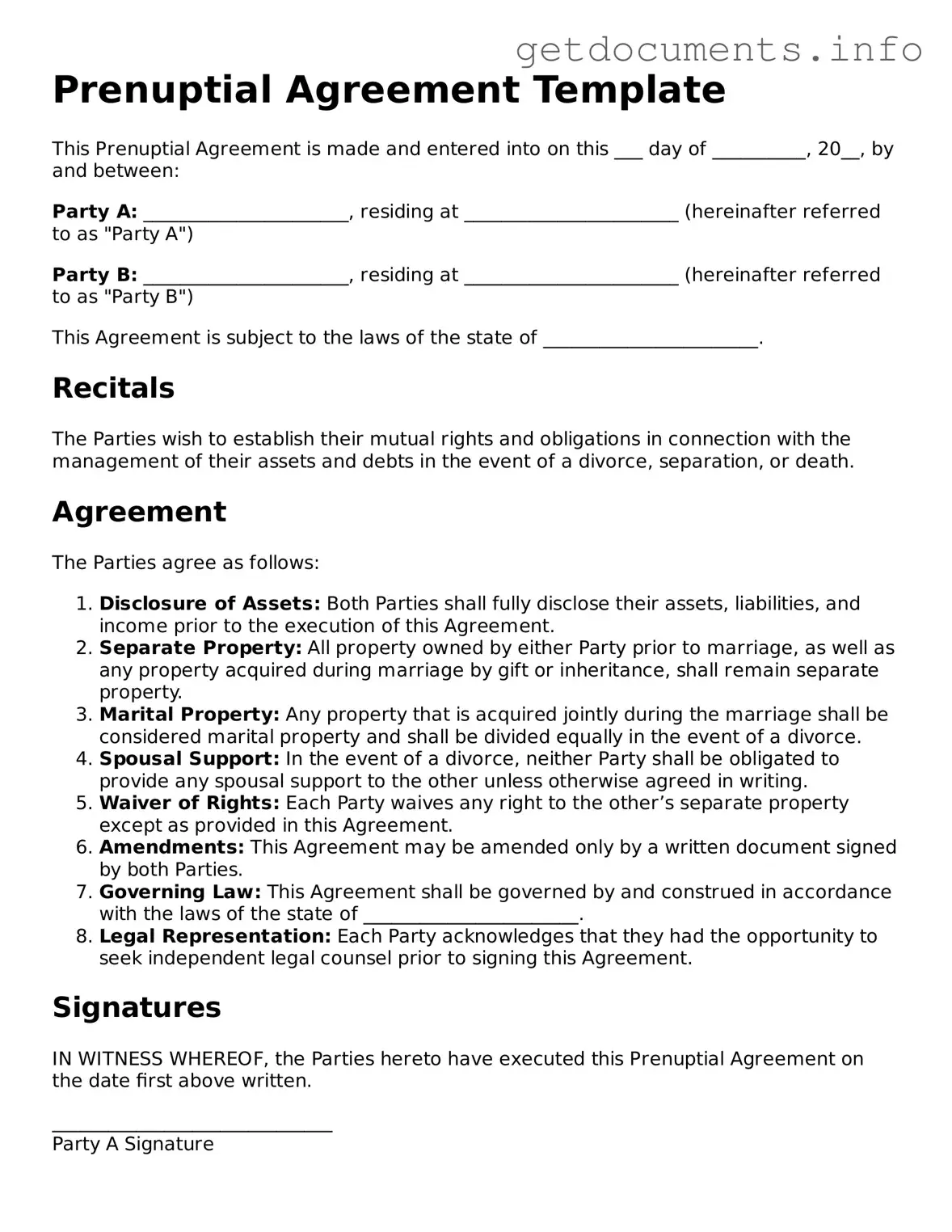Printable Prenuptial Agreement Document
A Prenuptial Agreement form is a legal document that outlines the financial and personal rights of each spouse before entering into marriage. This agreement can help clarify expectations and protect assets, ensuring both parties are on the same page. If you're considering a prenuptial agreement, take the first step by filling out the form below.
Access Prenuptial Agreement Editor

Printable Prenuptial Agreement Document
Access Prenuptial Agreement Editor
Got places to be? Complete the form fast
Fill out Prenuptial Agreement online and avoid printing or scanning.
Access Prenuptial Agreement Editor
or
⇩ PDF File
